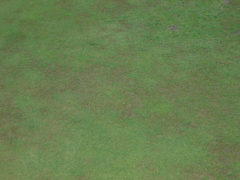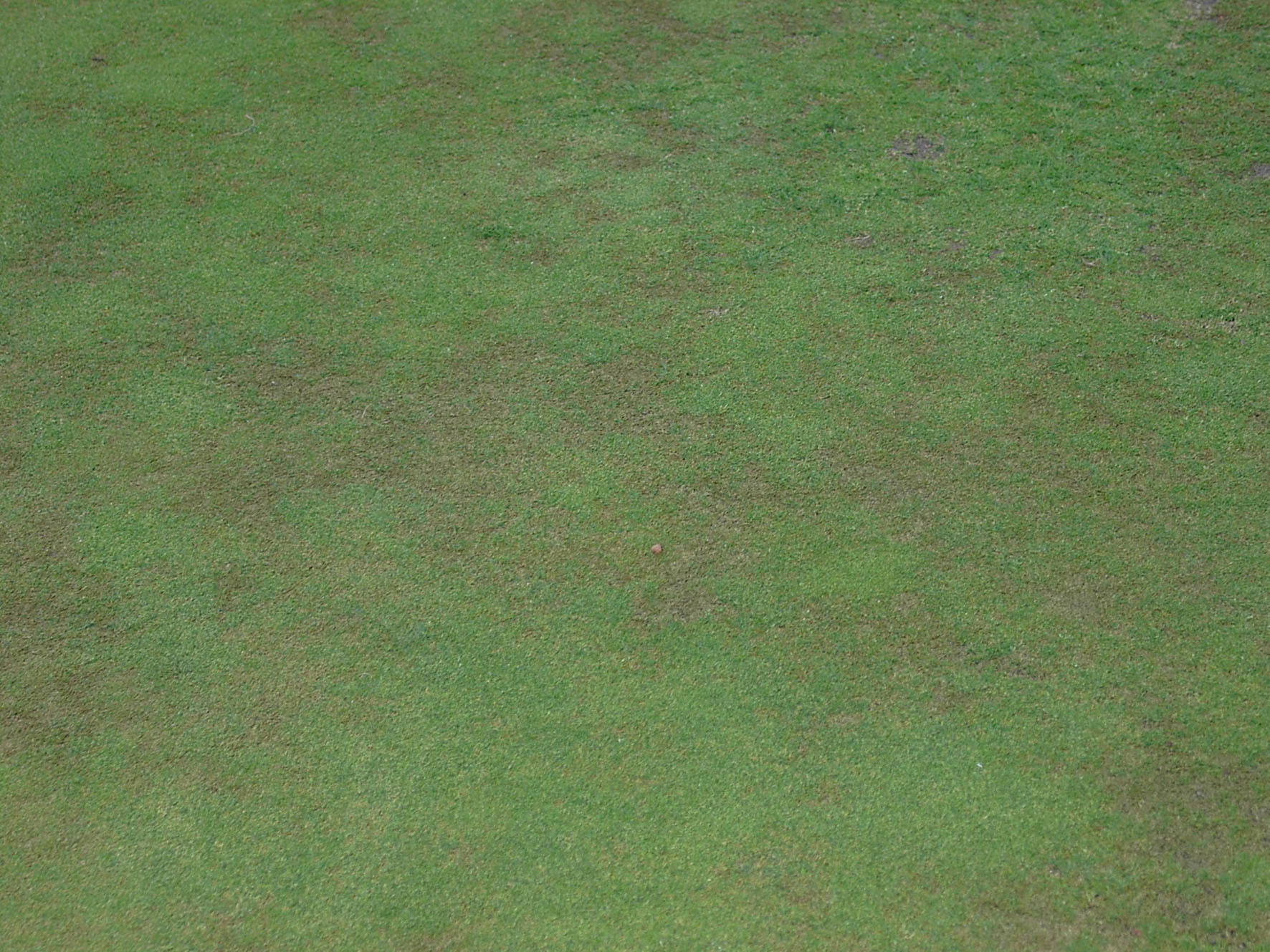
Anthracnose foliar blight is now the second most prevalent turf disease affecting quality playing surfaces in the UK. Greater stress on plants and rising summer temperatures has increased both the incidence and the severity of attacks.
Forecasts of rising temperatures after recent rainstorms in many areas raise the prospect of Anthracnose foliar blight infection breaking out. Foliar blight can affect any turf surfaces and any stress imposed now will significantly increase the risk of a damaging attack, warns Dr Simon Watson of Syngenta.
Drought conditions, nutrient deficiency, compaction from play or simply cutting tighter for the competition season could all trigger disease outbreaks. “With thoughts turning towards end of season ‘renovation weeks’, turf maintenance activities place extra pressure on plants and will further increase the chances of attack,” he advises. “With turf under stress, the effects will be more visible and any recovery will be slower.”
The increased pressure on greenkeepers and course managers to reduce costs, including nutrient programmes, and to produce faster surfaces by lowering cutting heights, will have contributed to increasing the risk of Anthracnose. This is being compounded by the trend towards hotter summers; every year for the past decade August temperatures have exceeded the long-term average.
Dr Watson recommends greenkeepers and course managers keep a close eye on the GreenCast website over the coming weeks to identify local Anthracnose disease risk. “If you can see risk rising and turf is under stress from any source, it is advisable to apply Banner Maxx or Instrata to protect turf from infection. It is even more important to apply a fungicide prior to any renovation work that will stress plants further.”
Many types of stress predispose turf to Anthracnose, such as drought, inadequate nitrogen, insect or nematode feeding and excessively low cutting heights, warns STRI Head of Turfgrass Protection, Dr Ruth Mann. “Therefore, any stress factors need to be alleviated.
“Anthracnose is often described as a ‘biological indicator’ – highlighting that the turf is not healthy. Nitrogen fertility is often low in affected areas, so an application of nitrogen as a foliar feed, in conjunction with the fungicide programme, may reduce the stress and suppress the symptoms.”
Dr Mann also advises irrigation scheduling should also be carefully managed to avoid drought conditions, especially on the more susceptible Annual Meadow-grass (AMG) dominant turf. Anthracnose is frequently mistaken for drought stress, but when applying water to alleviate symptoms you can actually spread spores and further exacerbate problems, she adds.
“Excessively low cutting heights should also be avoided, as this adds to the stress on the grass plants; Primo Maxx programmes may enable turf manager to raise cutting height, without adversely affecting turf density and the playing surface quality, as well as alleviating plant stress.”
She advocates any sward composition management should aim to promote less disease susceptible Bent grass and Fescue mixtures, with Primo Maxx application also helping to assure greater success with over sowing programmes this autumn.
Autumn Basal Rot risk
Turf managers with predominantly AMG greens must be also vigilant for Anthracnose Basal Rot when conditions turn cool and wet in late August or early September, warns Dr Simon Watson.
“At a time when Fusarium Patch risk can also be increasing as temperatures cool, Heritage Maxx would be the preferred option to prevent infection. With Anthracnose Basal Rot there is no curative option available, so preventative action is the only route. Heritage Maxx application ahead of autumn renovation activities can give the best possible protection against a broad spectrum of diseases.”
GreenCast is the dedicated turf management website from Syngenta, providing reliable local five-day weather forecasting and disease risk predictions, application advice, disease action notes and a range of other valuable tools for more accurate and targeted turf management.
GreenCast is available entirely free to all registered greenkeepers, turf managers, agronomists and students on www.greencast.co.uk or www.greencast.ie

